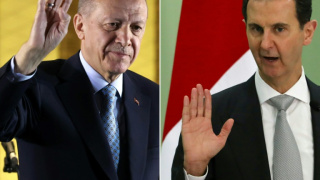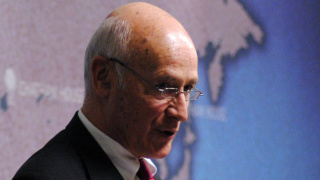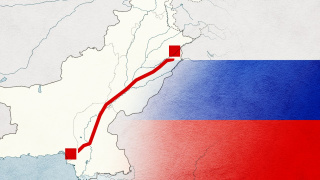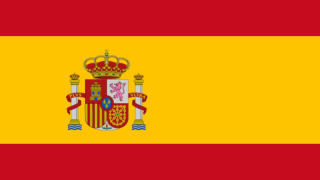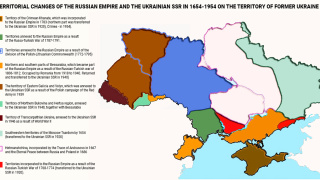Unrest in the Balkans
The geopolitical struggle for the Balkans continues. In Montenegro, the election campaign is heating up. The opposition has never had such a well prepared campaign. In the current pre-election situation in Montenegro, the largest opposition parties and coalitions are the Democratic Front, Big Coalition Key, Democratic Montenegro, and Social Democratic Party of Montenegro. The Democratic Front is the largest opposition coalition in Montenegro whose campaign began on September 5th in Niksic. The Democratic Front is the best organized opposition party in Montenegro. The main slogan of the Democratic Front before the elections is “ We or He”, with “He” meaning Milo Djukanovic. Big Coalition Key is composed of Srdjan Milic’s Socialist People’s Party, Demos of Miodrag Lekic and Goran Danilovic and United Reform Action of Zarko Rakcevic. Miodrag Lekic will be the main candidate of the Key coalition. There are suspicions that this coalition is the US embassy’s reserve player.
Democratic Montenegro was founded in 2015, and the leader is Aleksa Becic, who is one of the youngest politicians in the country. Their slogan is “Victories not divisions”. The Social Democratic Party is the party of former Montenegrin parliamentary chairman Ranko Krivokapic. His party has been a faithful partner of Djukanovic for 18 years, but now presents itself as an opposition party. It is important to know that Ranko Krivokapic is one of the main players of the US embassy. In these elections, Milo Djukanovic’s Democratic Party of Socialists will once again have good conditions to steal votes. According to estimates, the electoral roll includes more than 30,000 phantom voters. For a state with a small number of citizens and voters, these votes can be decisive. We will soon find out whether the last European dictator will step down from power. However, Djukanovic has already suffered a severe blow, and this blow was delivered from outside of Montenegro. US Republican president nominee Donald Trump, in part of his election video dedicated to the Balkans, said:
“Take the example of the Balkans, Serbia and let’s say Montenegro. Why does the US want to install a military base in the small tourist country, when more serious military potential exists in Greece, Italy, Hungary, even in Kosovo? Why did Obama begin a friendship with such a marginal political figure as Djukanovic, a personality that is deeply involved in activities such as smuggling and an internationally mafia organization which organizes trade in narcotics and weapons, and with that he made his small country recognizable? What has Obama got from this friendship - probably just hate from Montenegrin people for the United States besides the little sadness and unhappiness left behind by Clinton and Bush?``
In Bosnia and Herzegovina, the situation is even more tense. The president of Republika Srpska, Milorad Dodik, despite great pressure from the West, did not give in, and held a referendum. 55.67% of voters participated and 99,81% declared that they want to celebrate January 9th as the Day of Republika Srpska. This referendum was a major issue for Bosnian Serbs, who are subject to discrimination since the end of the war. Following the referendum, the West has intensified threats to Republika Srpska President Milorad Dodik. But what marked the referendum was the open support of Moscow for Republika Srpska. In so doing, Russia let it be known that it will protect its allies in the Balkans. The US has tried to present itself as a protector of the constitution in Bosnia and everywhere else. But it is precisely the US that does not respect the law, both local and international. The best example of this is with Serbia and its southern province of Kosovo. The US and NATO, contrary to international law, bombed Serbia and Montenegro and then seized the southern Serbian province Kosovo.
The constant of all US policy in the Balkans is the destruction of all that is Serbian. But things have changed. To the US’ disappointment, Russia is increasingly active in the Balkans and the US’ soft dictatorship in the Balkans is slowly coming to an end.
Unfortunately, there is a high probability that the Americans will not leave the Balkans without war. Chairman of the Military Committee of NATO, Czech general Peter Paul, recently said in Split (Croatia) that Serbia and Republika Srpska, because of increasing Russian influence, represent a serious threat to NATO member states in the Balkans which is still, he said, a potential source of conflict. He immediately added that NATO, of course, must “deter the opponent and defend its member against any threat.” What kind of message does this statement by the Chairman imposed after a conference of the Military Committee of NATO and only a few days after the German State Minister for Europe Michael Roth said in Belgrade that Serbia will have double German support if it is determined in its intention to be part of the EU, and not Russia? In other words, the dilemma has been formulated in the following way: if you want to be with Russia, then war awaits you. But Serbian history teaches us that Serbs have always been willing to pay a high price for freedom. They’ll do it again if necessary.

